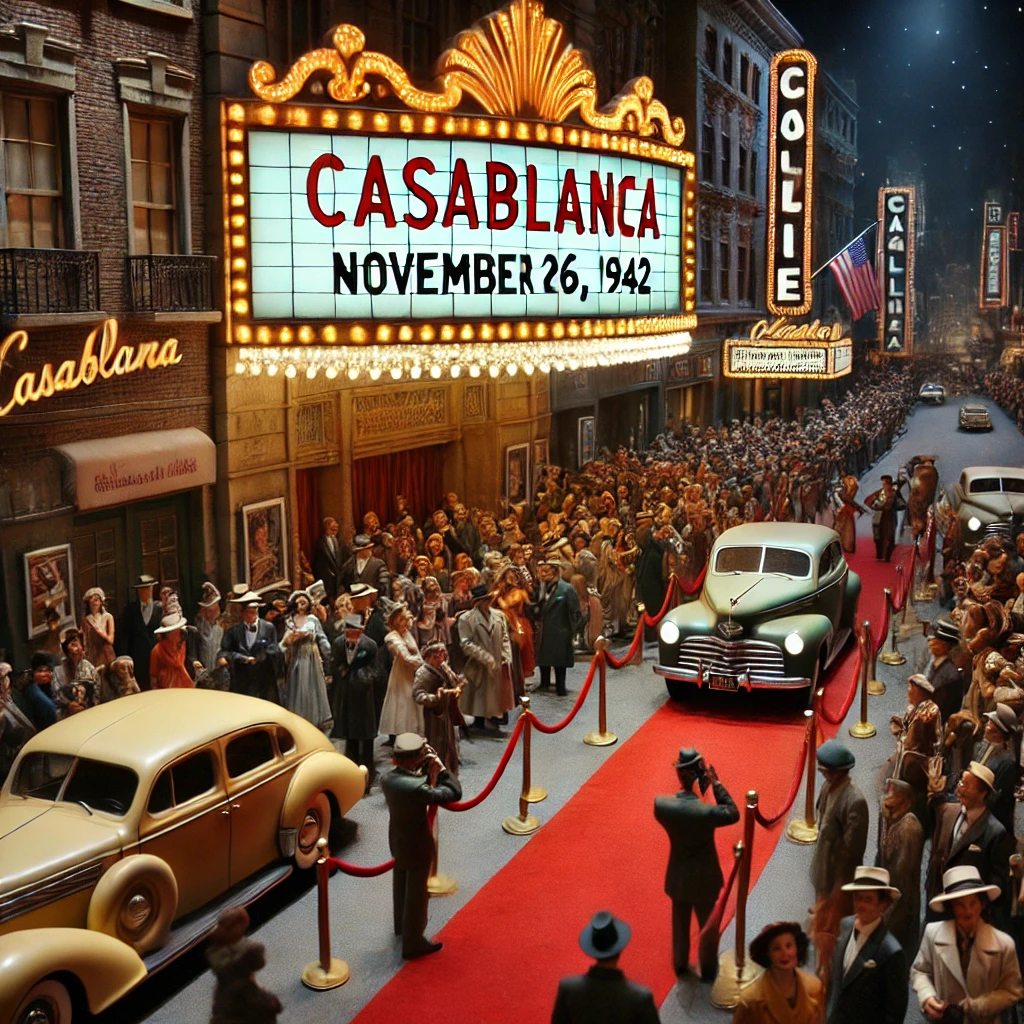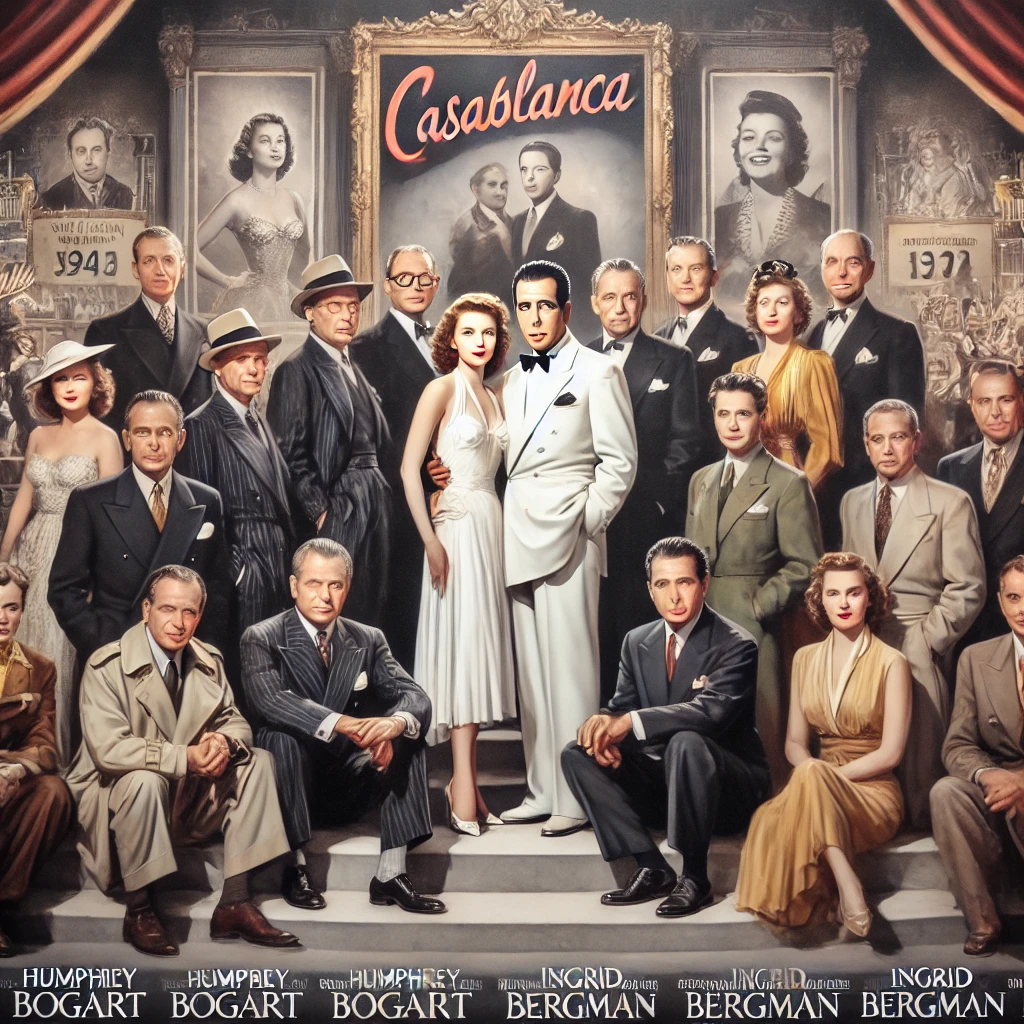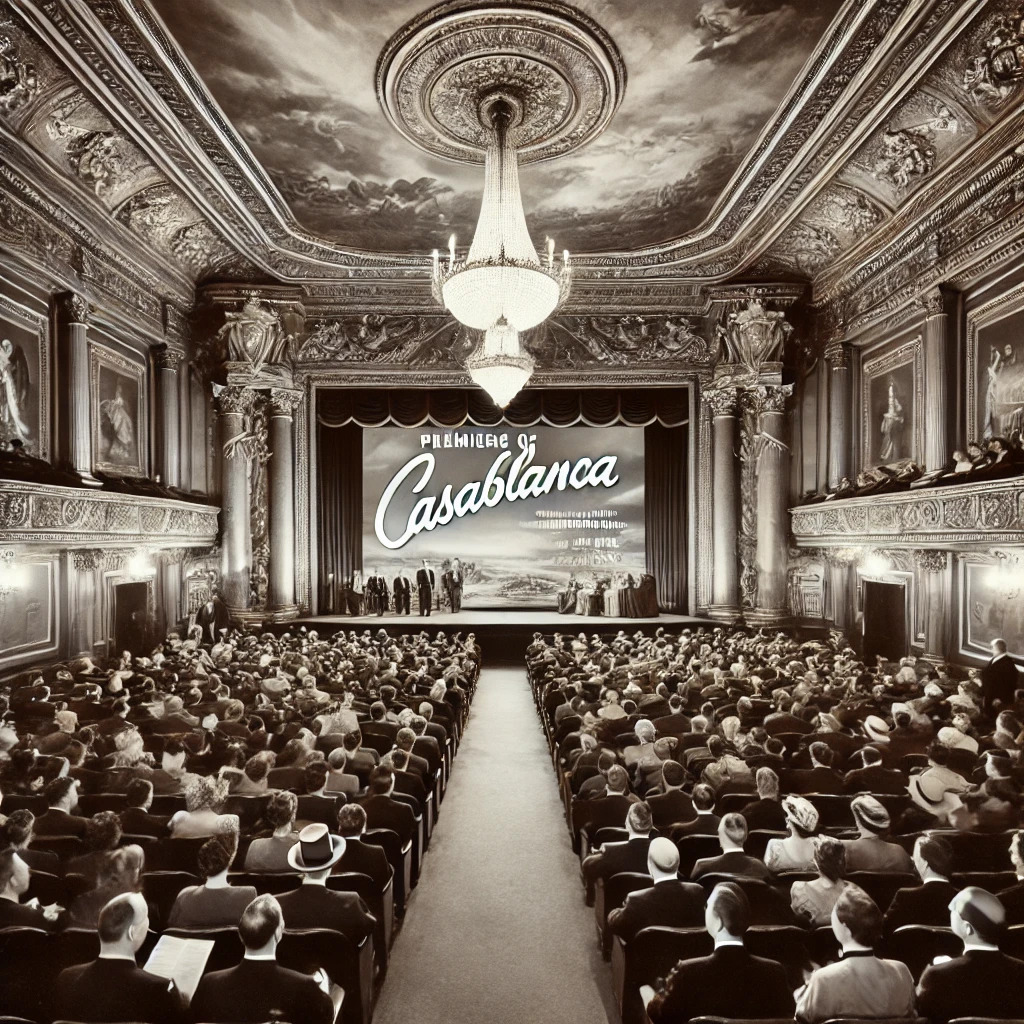On November 26, 1942, the classic film Casablanca premiered in New York City, captivating audiences with its compelling mix of romance, intrigue, and wartime drama. Starring Humphrey Bogart as the stoic nightclub owner Rick Blaine and Ingrid Bergman as the enchanting Ilsa Lund, the film has become one of the most beloved and iconic movies in cinematic history. Set against the backdrop of World War II, Casablanca masterfully weaves personal sacrifice with global conflict, creating a story that resonates as much today as it did during its debut.

A Wartime Masterpiece
Casablanca was released during a pivotal time in history. The world was deep in the throes of World War II, and the United States had entered the conflict just a year earlier. The film’s setting in the unoccupied French territory of Casablanca, a key point of escape for refugees fleeing the Nazis, reflected the tension and urgency of the era. Its themes of resistance, loyalty, and love struck a chord with audiences who were grappling with the realities of war.
The film’s premiere was strategically timed to coincide with the Allied invasion of North Africa, making it not only a piece of entertainment but also a subtle morale booster. By highlighting the moral dilemmas faced by its characters, Casablanca mirrored the sacrifices and hard decisions being made by millions during the war.

A Cast and Script for the Ages
The chemistry between Humphrey Bogart and Ingrid Bergman remains one of the film’s defining features. Bogart’s portrayal of Rick Blaine, a disillusioned idealist, contrasted perfectly with Bergman’s depiction of Ilsa, a woman torn between love and duty. Claude Rains, Paul Henreid, and Dooley Wilson also delivered unforgettable performances that brought depth and nuance to the story.
Equally significant was the film’s screenplay, which featured sharp dialogue and memorable lines that have since entered the cultural lexicon. Phrases like “Here’s looking at you, kid,” and “We’ll always have Paris” continue to evoke the film’s enduring themes of love and loss. Its ability to blend humor, romance, and drama earned Casablanca the Academy Award for Best Picture in 1944.
Enduring Legacy and Modern Relevance

More than eight decades after its premiere, Casablanca remains a touchstone of popular culture and an enduring symbol of cinematic excellence. Its themes of moral courage and personal sacrifice are as relevant today as they were in 1942, resonating with audiences across generations. The film has inspired countless reinterpretations, homages, and references in books, television, and movies.
Beyond its artistic influence, Casablanca serves as a historical artifact that offers insight into the cultural and political climate of its time. It continues to be studied and celebrated for its exceptional storytelling, timeless performances, and its role in shaping the golden age of Hollywood. For many, it remains a powerful reminder of the resilience of the human spirit during times of adversity.
As fans around the world revisit this timeless classic, Casablanca stands as a testament to the enduring power of love, sacrifice, and hope. Its story, characters, and themes continue to captivate and inspire, proving that some films truly are timeless.
